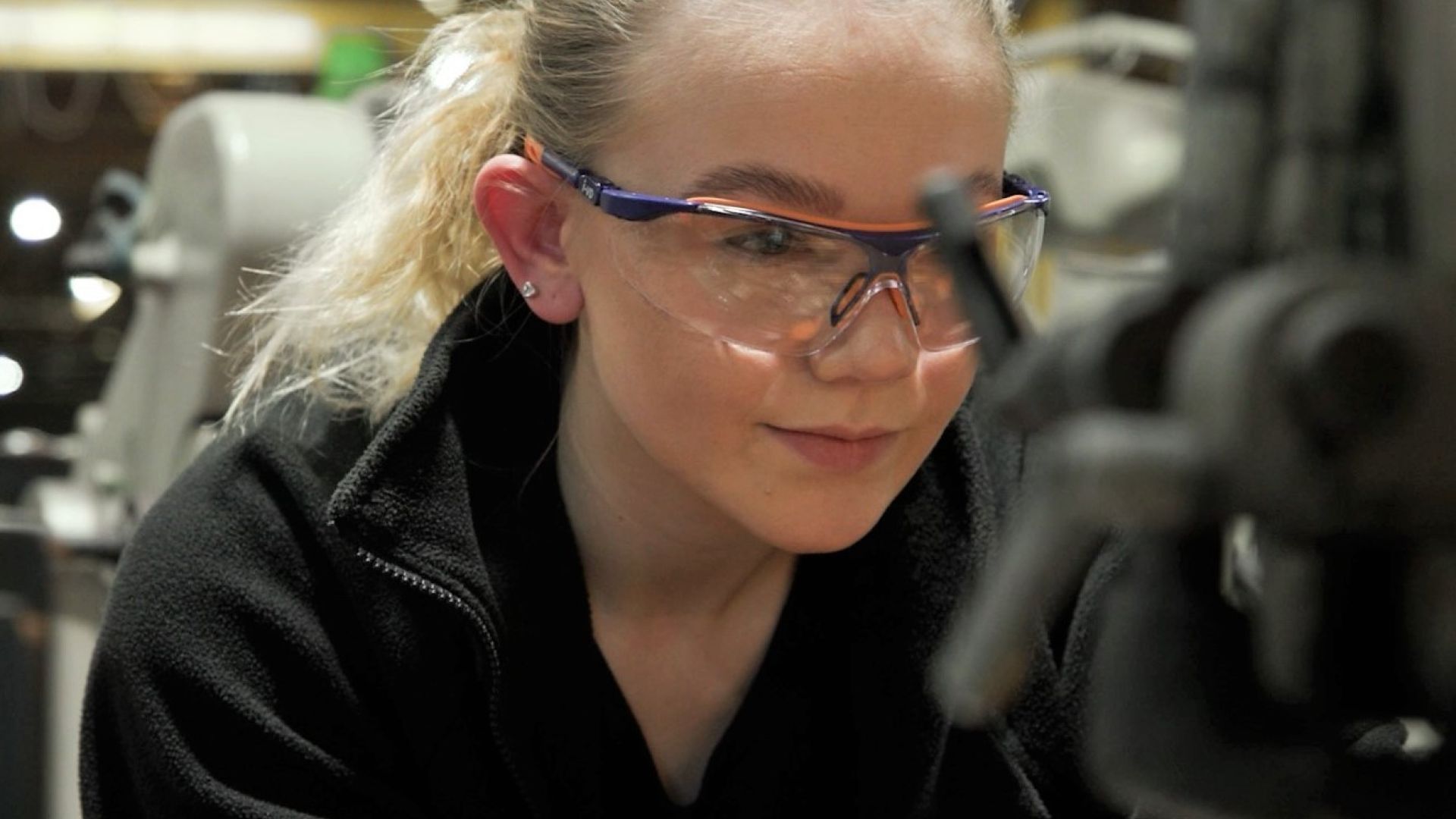Bachelor of Engineering (BEng) in Maintenance Engineering
Downtime due to maintenance and repair can have significant impact on profitability and delivery timescales. There is high demand for maintenance engineers with technical and managerial expertise.
This pathway focuses on the application of lifecycle management, statistical techniques, reliability, availability, asset management, engineering systems and control.
Graduates will be able to apply engineering and managerial skills to effectively and safely predict and plan maintenance schedules to avoid disruption and optimise production.
What will I study on this apprenticeship standard?
| Year 1 | Year 2 | Year 3 |
|---|---|---|
| • Engineering mathematics and computing | • Further mathematics and computing for engineering | • Industry 4.0 |
| • Electrical engineering and instrumentation | • Control systems and automation | • Maintenance management |
| • Manufacturing processes and materials engineering | • Professional engineering and sustainable manufacturing | • Lubrication and wear |
| • Fundamentals of science for engineers | • Multidisciplinary design | • Industrial project with end point assessment |
| • Professional development
for engineers | • Further science for engineers | • Fundamentals of reliability, availability, maintainability and safety. |
| • Introduction to design and CAD/CAM | • Manufacturing systems | |
| • Operations management. | • Introduction to asset management. |
Degree apprenticeship entry requirements:
You will need one of the following:
- A minimum of two A-Levels at grade B or above, which must include mathematics or further mathematics and of the following: Physics, biology, chemistry or engineering
- Level 3 BTEC national diploma in engineering DM or above (120 credits)
- Level 3 BTEC national extended diploma in engineering with at least 180 credits at DDM level
- Level 3 Cambridge Technical Diploma in engineering (VRQ) at DM or above
- Level 3 Cambridge Technical Extended Diploma in engineering (VRQ) at DDM
- Level 3 Foundation Technical Level Engineering at D or above and one A-level at grade B from the list above
- BTEC level 4 HNC (Distinction)
- BTEC level 5 HND (Distinction)
- Level 3 EAL Diploma in an engineering-based subject at distinction level
- T-Level Engineering Qualifications with distinction overall and B or above in core
Candidates with a HND or Foundation degree or who have completed the second year of a degree in a relevant subject can be assessed for direct entry onto the 2nd or 3rd year of the programme (BEng top-up), but 1st year entry or an alternative pathway may still be recommended.
Candidates who have not studied in the UK can submit transcripts for qualifications equivalent to level 3, which the admissions panel will review and may be taken in lieu of the specified qualifications.
Applicants are also required to successfully complete a series of assessments at the University of Sheffield AMRC Training Centre, as well as an employer recruitment and selection process to secure a place on an apprenticeship programme.
How do I apply?

"Definitely doing an apprenticeship is the way to go. I love learning on the job and having that one day a week at university to complete my studies. You get a real feel for what engineering is truly about, plus you get the experience."
Gabriella Spencer - Stanley Black & Decker
